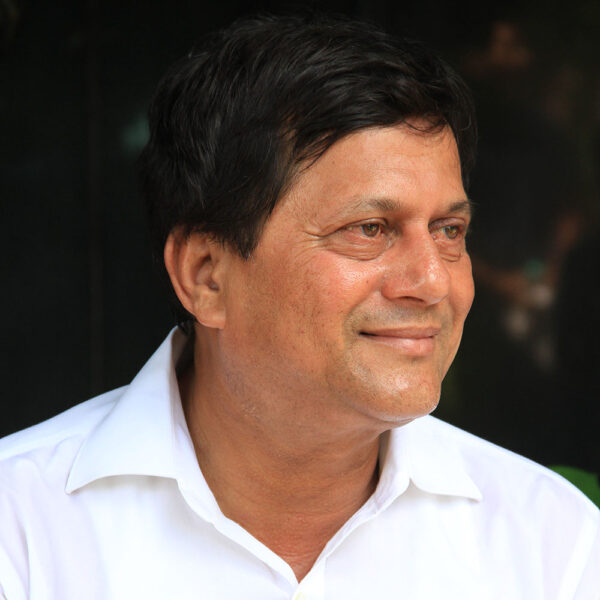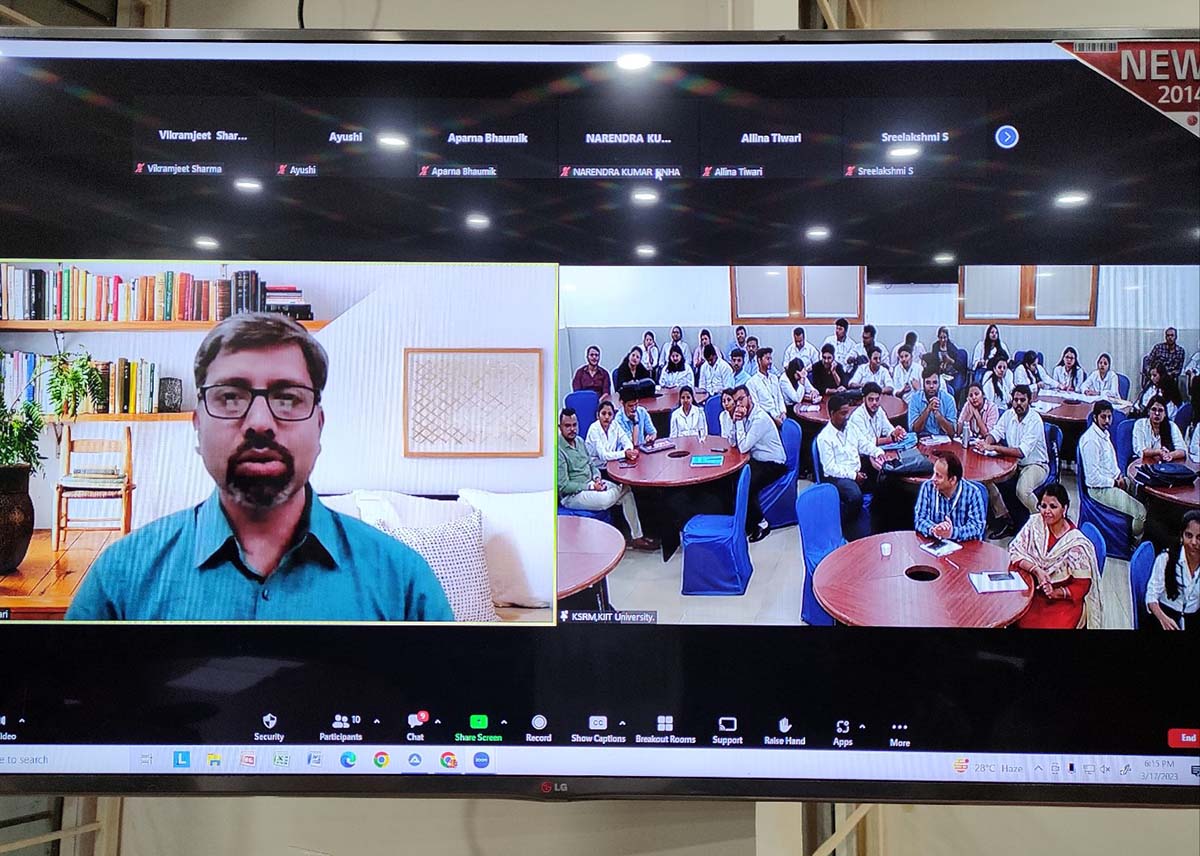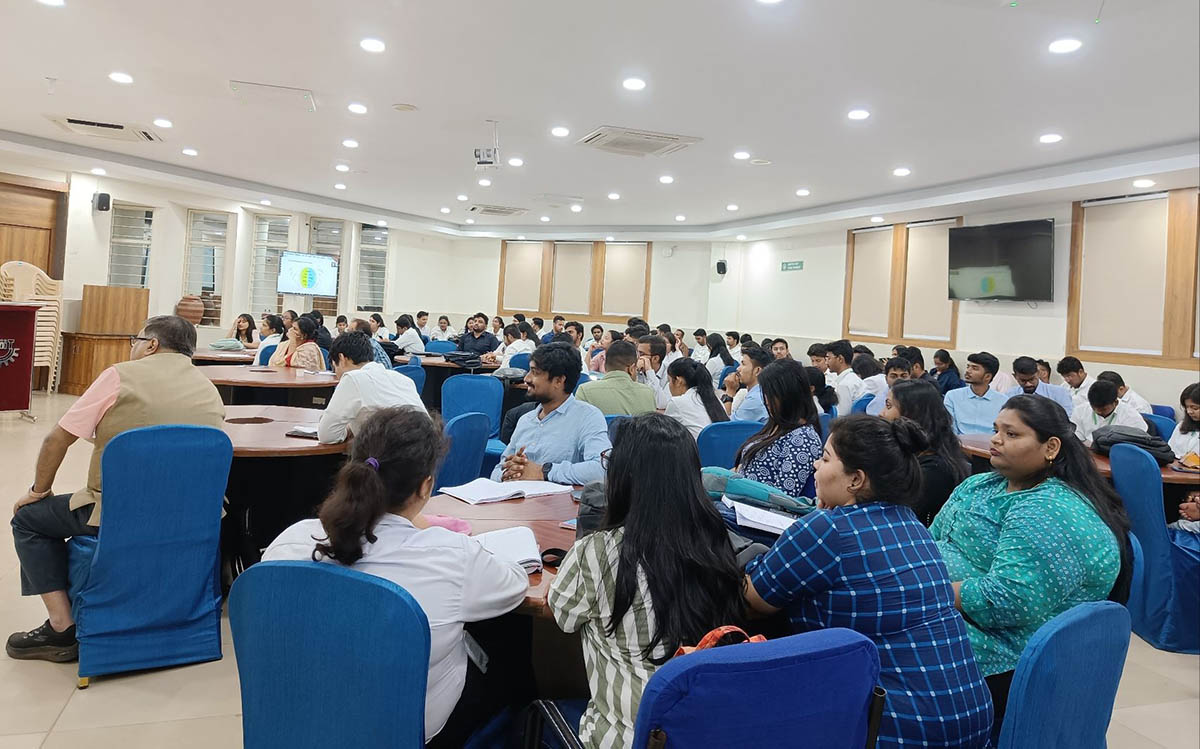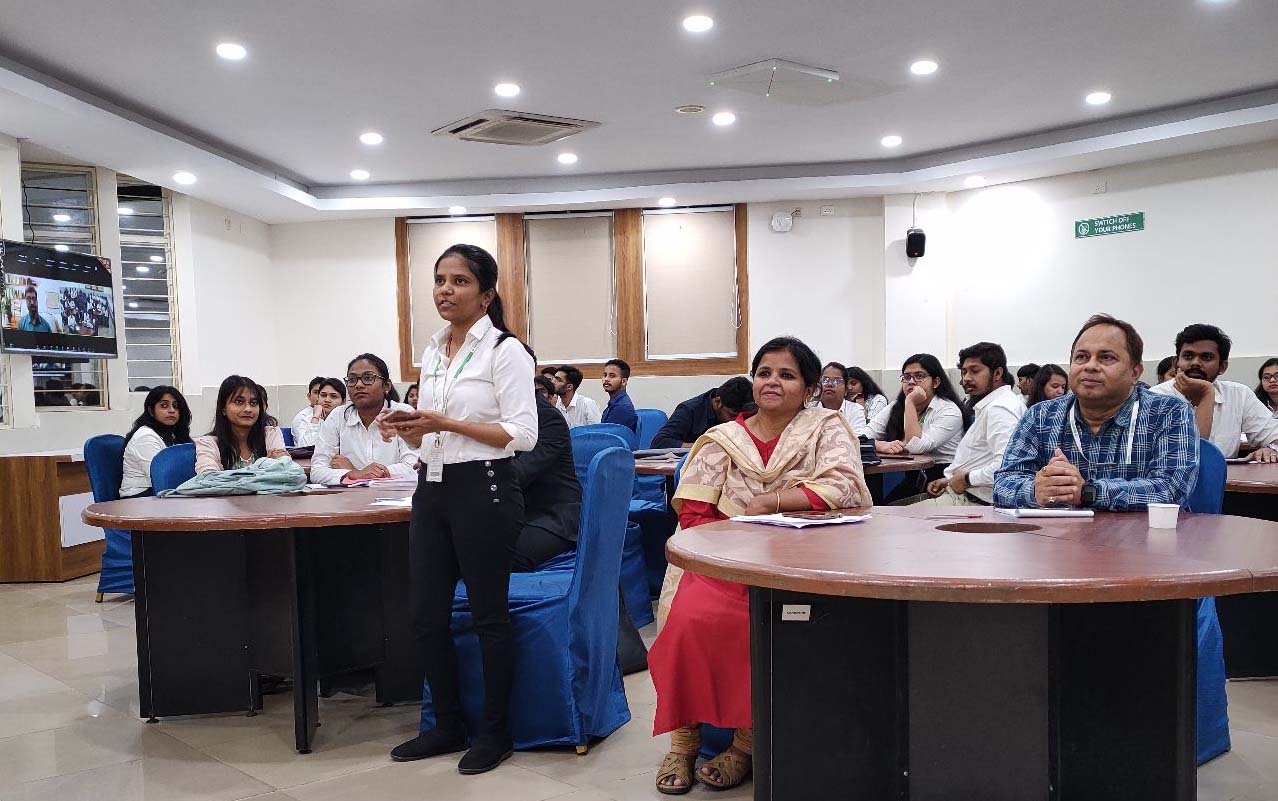Mr. Debaranjan Pujahari, Principal- Agriculture Practice, Sattva was the speaker for the talk. He is an accomplished development professional working in the domain of women’s economic empowerment, agribusiness, sustainable trade, climate-smart agriculture, and entrepreneurship development. He previously held leadership positions at a multitude of development agencies, namely, IFPRI-HarvestPlus, TechnoServe, Michigan State University to lead high-impact, transformative programs with donors like BMGF, USAID, FCDO, World Bank and private corporations. Mr. Pujahari has completed his Master’s in International Public Policy (MIPP) from the School of Advanced International Studies (SAIS), Johns Hopkins University. He also has Master’s Degree in Agribusiness Management from the National Institute of Agricultural Marketing, Jaipur, India and in Agricultural Statistics from the Odisha University of Agriculture and Technology, Bhubaneswar, India.
In the talk, Mr. Pujahari described the challenges the Indian agriculture sector is facing in terms of sustainability. He highlighted how agri-business and food system in India is not sustainable and is leading to significant losses and pollution due to lack of sustainable agricultural practices and poor agricultural waste disposal. Mr. Pujahari then elaborated the need of the circular economy model as compared to the traditional linear model and recycle model. He then elaborated the concept of circularity of agriculture where agricultural wastes or by-products at different stages such as production, post-harvest handling, processing retail/distribution, consumption should be used as a raw material for further production and value addition. Mr. Pujahari spoke about the scope for rural management and agribusiness management students in the sector and how they should prepare themselves for the same.




